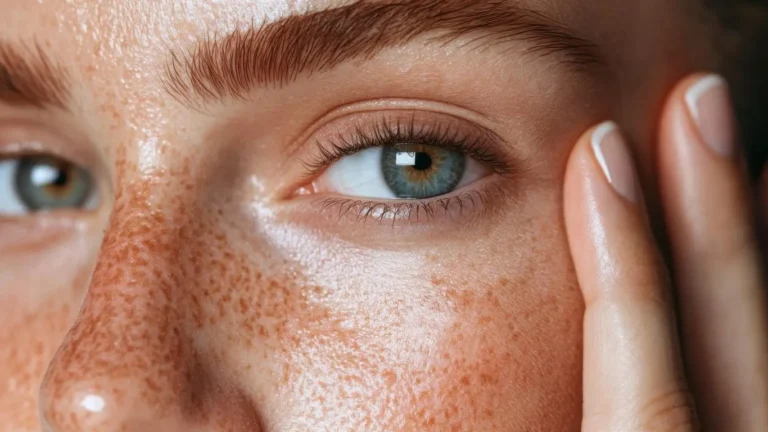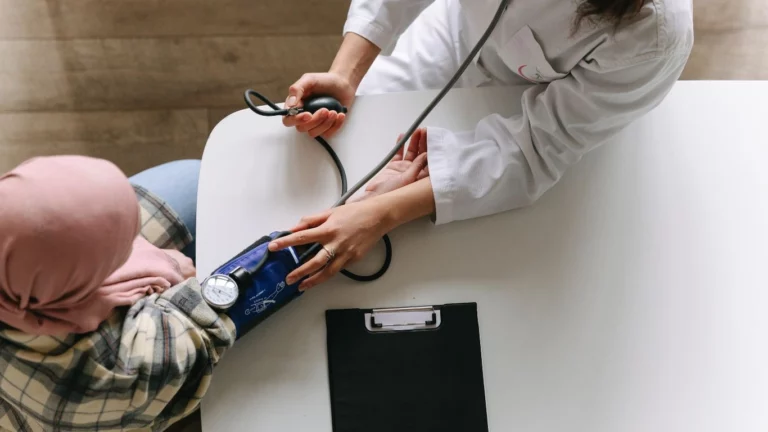Best Coffee Alternatives for GERD That Won’t Trigger Heartburn
Ever feel that sharp burn in your chest right after your morning coffee? You’re not alone. I used to start every single day with a rich, bold brew, convinced I couldn’t function without it. But over time, my body told me otherwise — cue the relentless heartburn, bloating, and that unmistakable throat sting. That’s when I began exploring alternatives that didn’t leave my stomach doing backflips. If you’re living with GERD like I am, finding a satisfying coffee substitute can make mornings enjoyable again. And trust me, it’s not as hard (or boring) as it sounds.
Why Coffee Can Be a GERD Trigger

Let’s get this out of the way first — coffee isn’t evil. But for many of us with GERD, it can feel like our stomach’s worst enemy. The problem is two-fold: caffeine and acidity. Both of these can relax the lower esophageal sphincter (LES), that little valve that’s supposed to keep stomach acid from climbing back up into your esophagus. Once it relaxes too much, well, hello heartburn.
According to Mayo Clinic, acid reflux is often worsened by acidic beverages, and coffee tops the list. And no, switching to decaf doesn’t always help — it still contains enough acid and trace caffeine to mess with your digestion. I learned that the hard way after sipping a “safe” decaf latte and dealing with bloating all day.
7 GERD-Safe Coffee Alternatives Worth Trying

1. Chicory Root Coffee
This one’s become my go-to. Chicory root coffee has a rich, roasted flavor that’s eerily close to regular coffee — without the acidity. It’s completely caffeine-free and surprisingly gentle on the gut. Bonus: it’s a natural source of inulin, a prebiotic fiber that can help with digestion.
Just make sure it’s pure roasted chicory with no additives. I once bought a brand mixed with barley and regretted it (wheat bloating is no joke).
2. Roasted Dandelion Tea
Okay, hear me out. It may sound like something a forest witch would brew, but roasted dandelion tea has a deep, earthy flavor that mimics coffee more than you’d expect. It’s also liver-friendly and naturally caffeine-free — a win-win for acid reflux sufferers.
If you’re new to it, start with lightly roasted versions. I personally prefer it with a splash of oat milk and a dash of cinnamon.
3. Carob Powder Drinks
Carob is a lesser-known gem for GERD folks. It’s naturally sweet, low-acid, and caffeine-free. When mixed with warm water or a milk alternative, it creates a creamy, slightly chocolatey drink that feels indulgent but won’t send your stomach into chaos.
This alternative pairs really well with almond milk — a combo I often use when I crave a comforting cup at night.
4. Licorice Root Tea (DGL)
Deglycyrrhizinated licorice (DGL) tea isn’t just GERD-friendly — it might actually help soothe your digestive tract. I sip this one when I know I’ve had a stressful day or a heavier meal. It coats the esophagus and helps reduce inflammation caused by acid irritation.
There’s a full breakdown of how licorice helps with reflux in this article on natural GERD relief.
5. Golden Milk (Turmeric Latte)
If you’ve never had golden milk, you’re missing out. This warm, anti-inflammatory drink made from turmeric, ginger, and coconut milk has been a staple in my routine, especially in colder months. Turmeric is known for its digestive benefits and can help reduce acid production — just don’t overdo the ginger if you’re sensitive.
Here’s a good rule: If it’s soothing and anti-inflammatory, your gut will likely thank you.
6. Slippery Elm Tea
This one’s more of a “feel-good” beverage than a coffee replacement, but it deserves a mention. Slippery elm helps form a protective barrier in your digestive tract — and the tea has a mild flavor that you can spice up with cinnamon or cardamom.
Definitely worth adding to your arsenal if you’re dealing with chronic irritation.
7. Barley Tea (Mugicha)
A staple in Japan and Korea, barley tea has a toasted flavor and zero caffeine. It’s smooth, low-acid, and very gentle on digestion. I actually started keeping a cold brew pitcher of this in the fridge for warm days — it’s refreshing and satisfying without the risk of reflux.
Check out this guide for nighttime tips too — combining the right drinks with sleep position changes really helped me.
Tips for Making the Switch

- Start slow – Don’t quit coffee cold turkey unless your symptoms are severe. Replace one cup at a time with an alternative.
- Mind your additions – Some sweeteners or creamers can be sneaky GERD triggers. Stick with gut-friendly choices like oat or almond milk and avoid artificial sweeteners.
- Temperature matters – I noticed that very hot drinks tended to flare up my symptoms. Warm, not piping hot, is usually better.
- Track how you feel – Everyone’s triggers are a little different. Keep a simple log for a week and see which alternatives your stomach loves best.
More than just a morning habit, finding the right drink is about reclaiming comfort and control. You can still have your moment of peace without the price of reflux. If you’re wondering whether it’s time to explore more foundational lifestyle shifts, this article on GERD lifestyle changes is an excellent deep dive.
What to Look for When Shopping GERD-Friendly Alternatives

Let’s be real — the drink aisle can feel like a minefield when you’ve got acid reflux. I’ve spent more time than I’d like to admit reading labels at the grocery store, and it’s not always straightforward. A lot of the so-called “healthy” or “herbal” options are secretly acidic or packed with triggers like mint or artificial flavors.
Here are some things I always double-check before tossing anything into my cart:
- No caffeine – Even “low-caf” can be enough to mess with your LES. Look for labels that specifically say “caffeine-free”.
- Acidity levels – If the product has a pH listed (rare but helpful), aim for something closer to neutral (pH 7).
- Short ingredient list – The fewer the ingredients, the easier it is to identify what works or doesn’t. Natural is the goal.
- No artificial sweeteners – These can cause bloating, gas, and other GI nightmares. I’ve learned to avoid them entirely.
- Watch for hidden triggers – Peppermint, spearmint, citrus oils, and chocolate can all sneak into “soothing” blends.
If you’re not sure whether a specific ingredient is GERD-friendly, this detailed guide on acid reflux diet restrictions is a great reference point.
How I Made the Switch and Actually Enjoy My Mornings Again

I’ll admit — I didn’t go into this change gracefully. The first few days without my strong morning brew felt like a foggy blur. Headaches, fatigue, a bit of grumpiness — all the signs of caffeine withdrawal were there. But the surprising part? After a week, my energy actually leveled out. And my reflux? So much better.
I started with chicory root coffee and added a splash of oat milk and a drizzle of raw honey. It became my new morning ritual. Then, I added turmeric golden milk in the evenings, which helped settle my stomach after dinner. No more bloating. No more acid sneaking up while I tried to sleep.
By week two, I found myself looking forward to my new drinks. They weren’t just replacements — they became a part of a calmer, more balanced routine.
It’s amazing how something as small as a beverage swap can ripple into so many areas of your life. Better digestion, improved sleep, and even clearer skin (seriously, cutting caffeine did wonders for me). If that’s not motivation, I don’t know what is.
What About Coffee-Flavored Cravings?

Let’s not pretend we won’t miss the flavor of coffee. There’s something comforting about it — warm, slightly bitter, rich. For me, that craving didn’t disappear overnight. So I got creative.
- Use carob and chicory blends – The combination brings that roasty coffee vibe without the acid punch.
- Add cinnamon or nutmeg – These spices bring out warm flavors and help mimic the depth of coffee.
- Use non-dairy milk foams – Frothy almond or oat milk adds the café feel without dairy-triggered reflux.
- A touch of vanilla extract – Adds depth and a sense of indulgence. I sometimes add it to my dandelion tea for that “latte” experience.
It’s not about fooling yourself — it’s about retraining your senses to appreciate new flavors. I’ll still get a whiff of someone’s espresso and feel a twinge of envy, but honestly? I don’t miss the aftermath.
Backed by Science, Not Just Anecdotes

If you’re the kind of person (like me) who likes to see the receipts, there’s growing research around the benefits of reducing caffeine and acidic drinks for reflux sufferers.
According to this 2023 study published in the NIH library, eliminating caffeine significantly reduced GERD symptoms in over 65% of participants. That lines up with what I’ve experienced, and what most GERD communities report too.
Even Cleveland Clinic lists coffee as a top reflux trigger and recommends low-acid or caffeine-free alternatives as a primary lifestyle intervention. So yeah — this isn’t just “try some tea” fluff. It’s legit.
Still skeptical? You’re not wrong to be. Everyone’s body is different, and there’s no one-size-fits-all solution when it comes to GERD. That’s why I highly recommend diving into this detailed guide on natural remedies for GERD to explore more evidence-backed options that might suit your symptoms better.
Choosing the Right GERD-Safe Alternative for You

One thing I’ve learned on this journey is that there’s no magic formula — what soothes one person might stir up symptoms in another. For me, roasted chicory and turmeric lattes were a hit. For a friend of mine with similar reflux issues, slippery elm tea did the trick. It all depends on your triggers, tolerance, and taste buds.
If you’re trying to figure out which alternative to start with, consider your personal sensitivity to ingredients like spice, natural sugars, or herbal compounds. Dandelion, for instance, is fantastic — but if your liver is sensitive or you’re on medication, always double-check with a trusted healthcare professional. That small step made a big difference in how confidently I built my GERD-safe drink routine.
Trial and Tweak — Your Gut Will Tell You
Don’t feel pressured to overhaul everything at once. Swap one drink, notice how your body reacts, and adjust. I started by replacing just my afternoon coffee — and the drop in bloating alone was enough motivation to keep going.
Keep a mental note or a simple journal. Trust me, it’s easier than trying to remember what you drank at 7 a.m. when you’re curled up with heartburn at 10 p.m.
Beyond the Cup: Simple Habits That Support Your Gut

Switching your drink is a powerful step, but it’s even more effective when combined with small lifestyle changes. I didn’t fully understand this until I started seeing patterns — like how sipping turmeric tea helped, but eating too close to bedtime wiped out that benefit completely.
- Stop eating 2-3 hours before bed – Seriously, this made the biggest difference for my nighttime reflux.
- Elevate your head when sleeping – I used to think this was overkill. Now I won’t sleep without my wedge pillow.
- Eat slower – Simple but underrated. When I inhale my food, my reflux flares. Every. Single. Time.
- Stay hydrated — but smartly – Sip water throughout the day, and avoid chugging during meals.
If you’re looking to deepen this area, I highly recommend this insightful read on long-term GERD management strategies. It goes beyond just what to eat or drink and dives into habits that actually last.
My GERD-Friendly Morning Routine Now (and Why I’m Not Going Back)

These days, my mornings feel more intentional. I wake up, boil water, and prep a cup of golden milk or chicory root coffee, depending on my mood. Sometimes I’ll sip it while journaling or just staring out the window with my dog curled up nearby. It’s quiet, grounding — and no longer followed by that gnawing burn in my chest.
I don’t miss the anxiety I used to feel anticipating that first sip of coffee and the symptoms that would almost always follow. Now, there’s calm. Predictability. And most importantly, comfort.
If there’s one thing I’d tell anyone dealing with GERD, it’s this: Don’t settle for discomfort just because you love your habits. With a little experimenting, you can find new ones that love you back. Because yes — you can still enjoy warm, delicious drinks without paying for it later.
And if you’re looking for a full breakdown of symptoms to help you figure out what’s triggering your own reflux patterns, this guide on GERD symptoms not to ignore is incredibly useful — it helped me connect dots I’d overlooked for years.
Curious to Explore More GERD-Friendly Flavors?

If you’ve already dipped your toe into GERD-safe drinks and want to branch out, there’s an entire world of flavors that won’t sabotage your digestion. Herbal blends, gentle smoothies, spiced broths — even cold brews made from low-acid barley or chicory can add variety without the reflux backlash.
I’m still trying new combos regularly, like chamomile mixed with ginger or rooibos with cardamom. Some experiments flop. Others? Total game-changers.
Oh, and if you haven’t seen it yet — this deep dive into GERD-friendly snacks has some great options to pair with your new beverage routine. Because what’s a cozy drink without a little bite to go with it?
Bottom line? Giving up coffee doesn’t mean giving up comfort, ritual, or even bold flavor. It just means listening to your body a little closer — and finding new ways to feel good without the burn.

Camellia Wulansari is a dedicated Medical Assistant at a local clinic and a passionate health writer at Healthusias.com. With years of hands-on experience in patient care and a deep interest in preventive medicine, she bridges the gap between clinical knowledge and accessible health information. Camellia specializes in writing about digestive health, chronic conditions like GERD and hypertension, respiratory issues, and autoimmune diseases, aiming to empower readers with practical, easy-to-understand insights. When she’s not assisting patients or writing, you’ll find her enjoying quiet mornings with coffee and a medical journal in hand—or jamming to her favorite metal band, Lamb of God.







